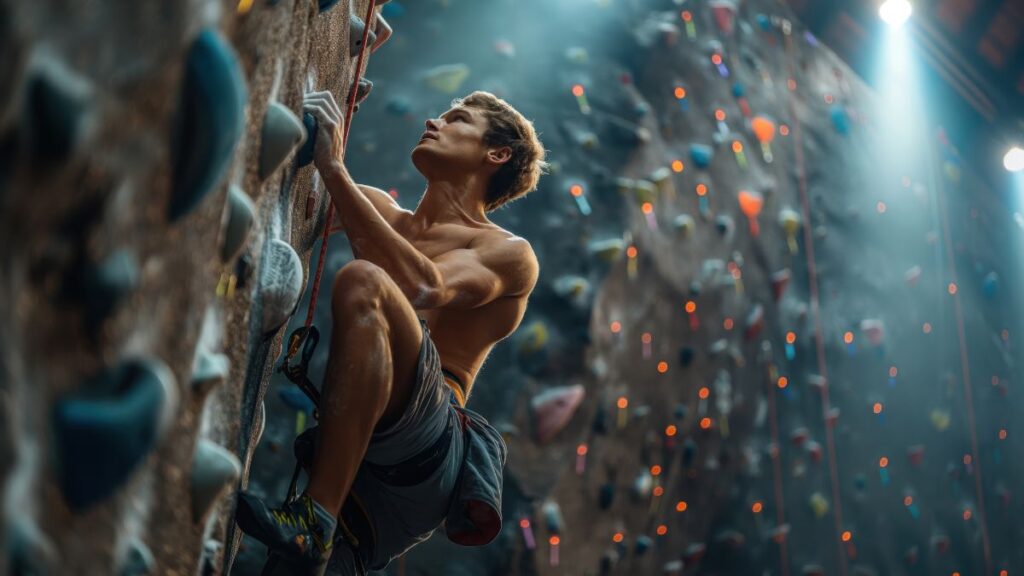Introduction
Sport climbing made its Olympic debut at the Tokyo 2020 Summer Games, introducing a dynamic and visually compelling event to the global audience. The combined format, which integrated three distinct disciplines—speed climbing, bouldering, and lead climbing—was met with both enthusiasm and criticism. Athletes were required to excel across all three disciplines, testing their versatility and adaptability. However, this combination also sparked debates regarding fairness and the representation of each discipline’s unique skill set.
The Combined Format at Tokyo 2020
In Tokyo, the combined event was structured as follows:
-
Speed Climbing: Athletes raced against each other on a standardized 15-meter wall, aiming to reach the top in the shortest time.
-
Bouldering: Climbers tackled short, powerful routes without ropes, attempting to reach the top within a limited number of attempts.
-
Lead Climbing: Competitors ascended a 15-meter wall with a rope, aiming to climb as high as possible within a set time limit.
The results from each discipline were combined to determine the overall standings. This format required athletes to be well-rounded, as excelling in one discipline could not compensate for underperformance in another.
Outcomes and Criticisms
The Tokyo 2020 combined event crowned its first Olympic champions:
-
Men’s Gold: Alberto Ginés López (Spain)
-
Women’s Gold: Janja Garnbret (Slovenia)
While the event showcased remarkable athleticism, it also highlighted the challenges of combining disciplines with distinct demands. Speed climbers, for instance, had to quickly adjust to the endurance required in lead climbing, and boulderers had to manage the precision needed in speed events. This raised questions about the fairness and effectiveness of the combined format in representing the sport’s diversity.
Transition to Paris 2024
In response to feedback from athletes and stakeholders, the International Federation of Sport Climbing (IFSC) and the International Olympic Committee (IOC) decided to modify the Olympic climbing format for Paris 2024. The combined event was split into two separate competitions:
-
Speed Climbing: A standalone event where climbers raced against each other on a standardized 15-meter wall.
-
Bouldering & Lead Climbing Combined: Athletes competed in both disciplines, with their performances combined to determine the overall standings.
This change allowed athletes to specialize and focus on their strengths, leading to more accurate representations of their abilities in each discipline.
Results from Paris 2024
The Paris 2024 Olympics saw the following medalists in the sport climbing events:
-
Men’s Speed Climbing:
-
Gold: Veddriq Leonardo (Indonesia)
-
Silver: Wu Peng (China)
-
Bronze: Samuel Watson (USA)
-
-
Women’s Speed Climbing:
-
Gold: Aleksandra Mirosław (Poland)
-
Silver: Deng Lijuan (China)
-
Bronze: Aleksandra Kałucka (Poland)
-
-
Men’s Bouldering & Lead Combined:
-
Gold: Toby Roberts (Great Britain)
-
Silver: Sorato Anraku (Japan)
-
Bronze: Jakob Schubert (Austria)
-
-
Women’s Bouldering & Lead Combined:
-
Gold: Janja Garnbret (Slovenia)
-
Silver: Brooke Raboutou (USA)
-
Bronze: Jessica Pilz (Austria)
-
These results underscore the success of the revised format, with athletes having the opportunity to shine in their specialized disciplines.
Looking Ahead
The evolution of sport climbing in the Olympics reflects the dynamic nature of the sport and its commitment to fairness and representation. As the sport continues to grow, future Olympic formats may further adapt to ensure that all disciplines are adequately showcased. The experiences and outcomes from Paris 2024 will undoubtedly inform decisions for the Los Angeles 2028 Games and beyond.
Conclusion
The journey of sport climbing in the Olympics—from the combined format in Tokyo 2020 to the specialized events in Paris 2024—demonstrates the sport’s adaptability and the IOC’s responsiveness to athlete feedback. As sport climbing continues to evolve, it will be exciting to see how future Olympic formats balance tradition, innovation, and the diverse skills of climbers.






